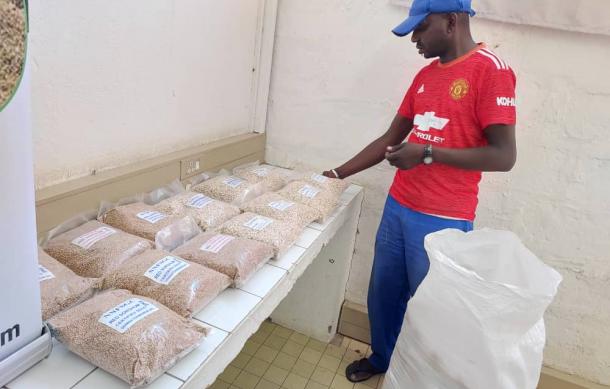
Certified-quality seeds produced and sold to the community, government, and individuals by the Northern Namibia Farmers Seed Growers Cooperative at the Omahenene seed multiplication and seed processing plant have run out.
This is the time when crop farmers and community members flock to Omahenene seed multiplication and seed processing offices to purchase certified seeds as they look forward to preparing their mahangu fields.
The core business of the cooperative is the production, processing, and marketing of quality certified seeds in the country. However, this year, the cooperative failed to produce enough seeds due to the poor rainfall received last year.
At present, the seeds are already finished, having been sold out in a short period of three weeks.
The general manager of the Northern Namibia Farmers Seed Growers Cooperative, Abraham Hashikutuva, says their seeds are in high demand.
The only available seeds at the cooperative now are foundation seeds, reserved for seed growers, and people are advised not to travel to Omahenene in search of seeds because there is nothing.
"Last year, 2022, we produced a total of 149.9 metric tonnes for all grades, and this year we have very little, 22.6 metric tonnes, with a difference of 127 metric tonnes compared to last year. That is why this year we do not have enough seeds. Currently, we do not have anything, not even production seeds. Farmers are crying, and we also do not know what we can do. Maybe if the government is able to import and source somewhere, maybe it can satisfy the nation."
Most crop farmers prefer certified seeds from Omahenene because they mature early, even with low rainfall, and they are high-yield and drought-resistant.
The varieties of seeds produced at Omahenene are two types of millet, namely Okashana and Kangara; red and white sorghum; and three types of cowpeas.
Now that the certified seeds are finished, Hashikutuva has the following advice for farmers: "The advice we have now is for them to plant local mahangu because the season is looking promising because there is nothing we can do. This was caused by the poor rainfall last year."
Some of the challenges faced at the cooperative include a lack of tractors and equipment for assessing rainfall for seed production, high prices for chemical fertiliser, a lack of transport to collect seeds from farmers, and a shortage of foundation seeds.
Another concern is the lack of irrigation facilities to produce seeds during the off-season and the lack of pre-screening and packaging machines.





